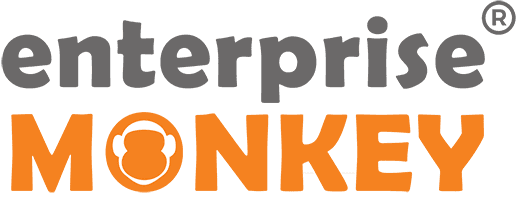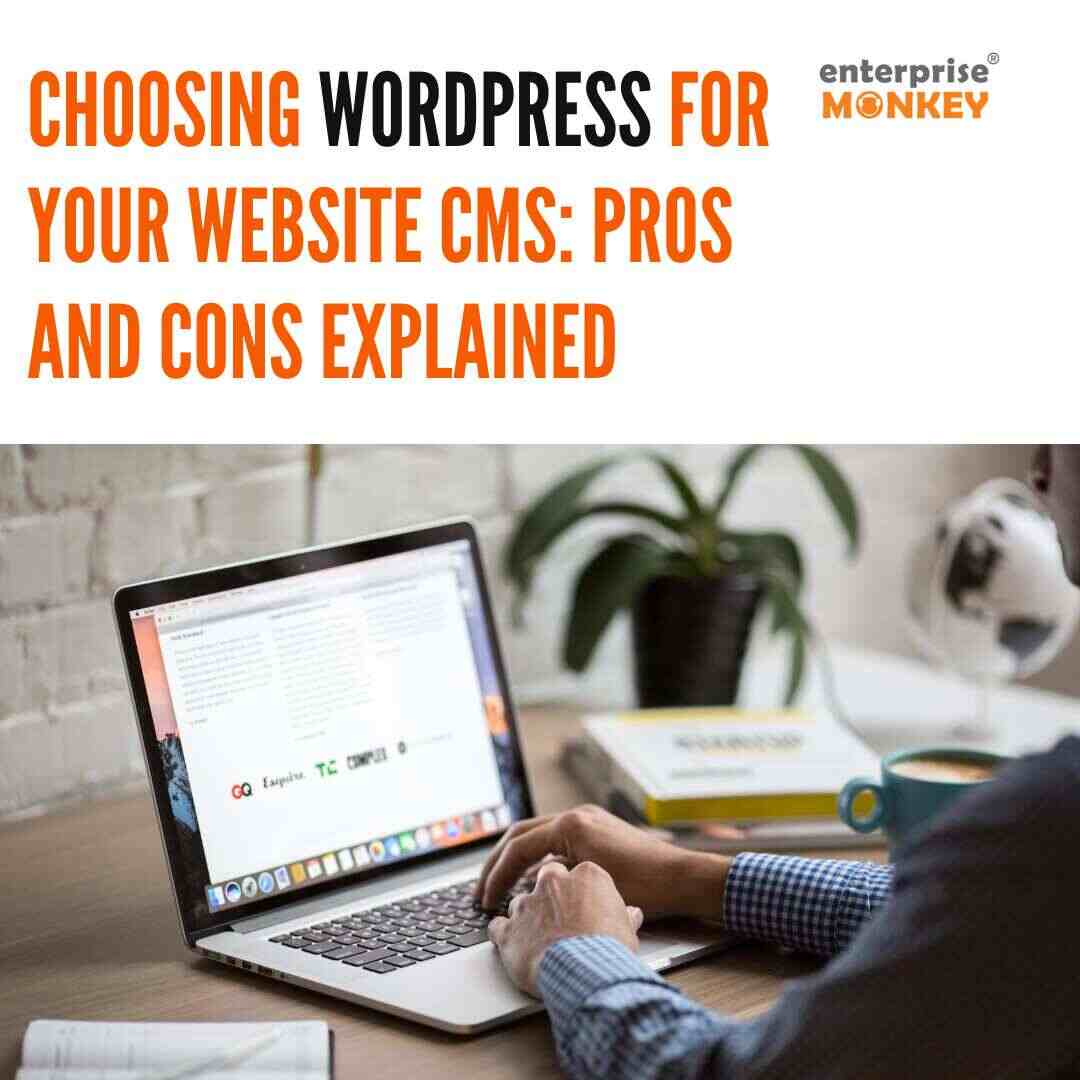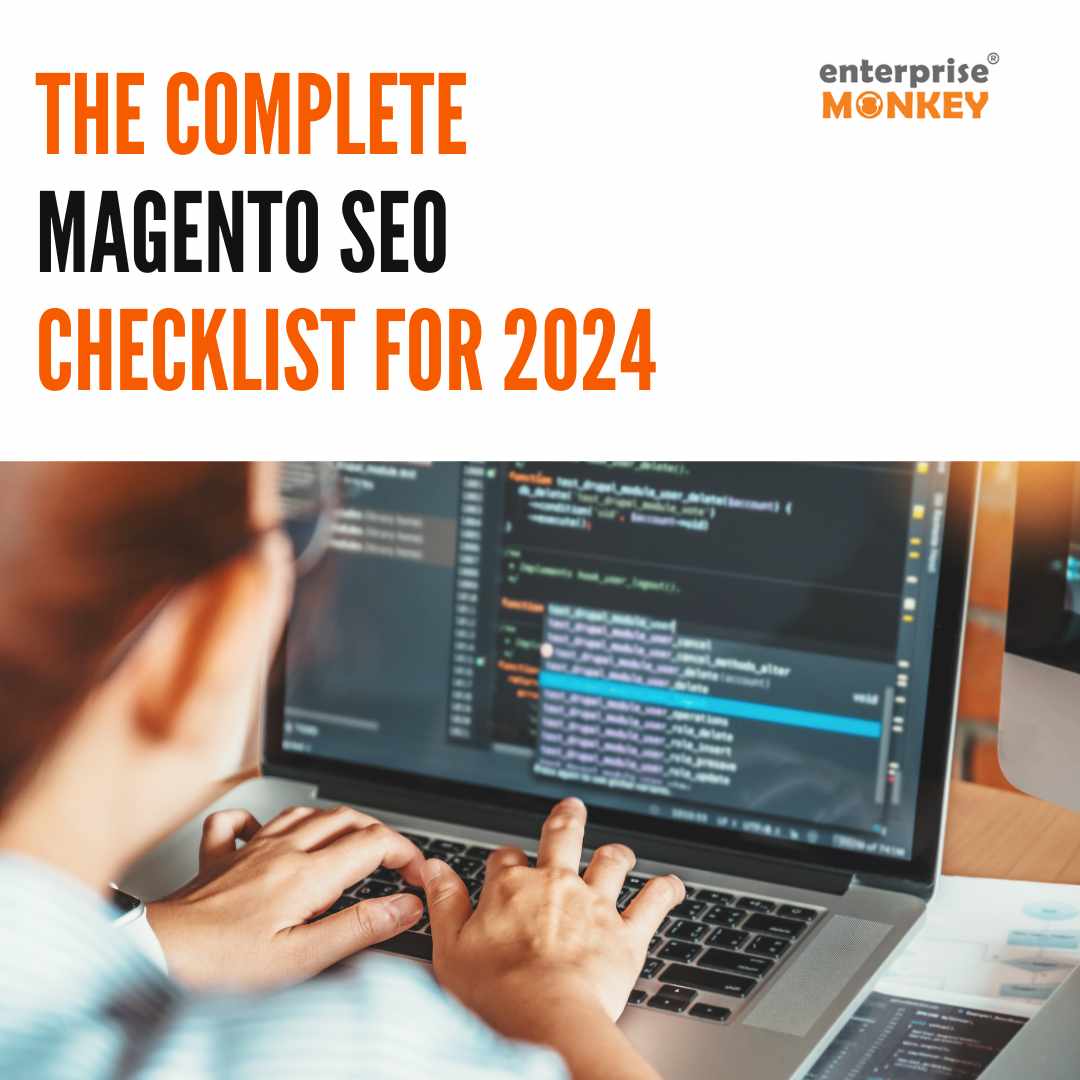When selecting the right content management system (CMS) for your website, the first name that comes to mind is WordPress. Capturing over 40% of the global market share, WordPress is the top choice for website development. However, like any platform, WordPress has its own set of pros and cons that are crucial to consider before making a decision.
The user-friendly interface, ease of development, vast plugin ecosystem, and customisable features make WordPress CMS a go-to choice for millions of website owners worldwide.
Nevertheless, the tangible challenges of this open-source platform, such as site speed optimisation issues, customisation limitations, and security vulnerabilities, may make you think twice before choosing it for your business.
Therefore, if you have doubts about WordPress’s credibility for your website’s future growth, this detailed analysis can help you make the right decision.
In this blog post, we’ll explore both the sunshine and shadows of WordPress, examining its strengths while acknowledging potential drawbacks, helping you navigate the complexities and making an informed choice for your online presence.
Let’s start with the pros first.
Pros of WordPress CMS: Why is it a Perfect Fit for Your Website?
WordPress is used by millions of websites worldwide because of its plethora of benefits to the business owners. Let us find out how this platform can serve best to uplift your website growth and reach:
1. User-Friendly
WordPress’s user-friendliness is highly appreciated by those who built their websites on this platform. Its intuitive interface and straightforward content management system (CMS) shine from the moment you log in.
Unlike other platforms that require coding knowledge or technical expertise, WordPress allows users of all skill levels to manage website content easily. Its dashboard is organised logically, with clear menus and options for adding new pages, posts, media, and plugins.
The visual editor offers a familiar experience similar to word processing software, enabling users to insert media, format text, and create engaging content without needing knowledge of HTML or CSS.
2. Vast Plugin Ecosystem
With over 50,000 plugins available, developers and website owners can quickly and affordably add complex features such as contact forms, SEO tools, eCommerce capabilities, and social media integration without custom coding.
This flexibility allows for rapid development and scalability, enhancing and evolving your website in line with business growth. Additionally, many plugins are designed to be user-friendly, enabling even non-technical users to manage their sites effectively.
3. Highly Customisable
WordPress offers extensive customisation advantages, making it a preferred choice for creating unique and tailored websites. Unlike some website builders with limited options, WordPress lets you build a website that feels truly bespoke.
One of WordPress’s key strengths is the vast array of themes and plugins available. These allow users to personalise their websites according to specific design preferences and functional requirements.
Themes allow users to effortlessly change the appearance and layout of their sites, with options ranging from simple, minimalist designs to complex, visually stunning layouts.
Moreover, plugins enhance functionality by adding features like eCommerce capabilities, social media integration, SEO optimisation, contact forms, and more. Need a built-in contact form, an appointment booking system, or a membership area? There’s likely a plugin for that.
The ability to mix and match themes and plugins and customise code for advanced users gives WordPress unparalleled versatility in creating websites that meet diverse needs and reflect individual brand identities.
4. SEO Friendly
WordPress is an SEO powerhouse! WordPress is built with search engines in mind. This means you don’t have to be an SEO expert to improve your website’s ranking.
WordPress allows users to customise permalinks, meta tags, and titles, enabling better optimisation of individual pages and posts for target keywords. One of the key benefits is its clean and SEO-friendly code structure, which facilitates easier crawling and indexing by search engines like Google.
Additionally, thousands of SEO plugins exist to supercharge your efforts. These plugins help with tasks like keyword research, on-page optimisation suggestions, and even sitemap generation, all crucial elements for climbing the search engine ladder.
| Plugins like Yoast SEO provide valuable tools for on-page SEO analysis, helping users optimise content, headings, images, and meta descriptions to improve search engine rankings. |
Furthermore, WordPress’s responsive design and fast loading times contribute positively to SEO, as mobile-friendliness and site speed are key factors in search engine algorithms.
5. Scalable
WordPress boasts a scalability advantage that suits a surprising range of websites. Whether starting with a small blog or planning to scale up to a large eCommerce site or enterprise-level platform, WordPress offers the flexibility to grow alongside your business or project.
Its modular architecture and plugin ecosystem allow for seamless functionality expansion without compromising performance. Users can easily add new features, integrate third-party services, and manage increasing content as their websites evolve.
WordPress’s scalability extends to handling high traffic efficiently, thanks to optimisation options, caching mechanisms, and compatibility with robust hosting solutions.
This scalability advantage makes WordPress an ideal choice for businesses and organisations looking for a platform that can grow with their needs and provide a solid foundation for long-term success.
6. Mobile Responsiveness
Mobile usage worldwide will reach 8.58 billion by the end of the current year. Thus, a website that looks great and functions flawlessly is no longer a luxury but a necessity. And WordPress knows this quite well!
WordPress themes are responsive. Meaning, they can automatically adjust and optimise the layout and content of websites to ensure they look and function seamlessly across various screen sizes and devices.
This mobile-friendly approach is not only user-friendly but also enhances the user experience by providing a consistent and accessible interface regardless of the device used.
Moreover, Google and other search engines prioritise mobile-friendly websites in search results, making mobile responsiveness a key factor in improving search engine rankings and attracting organic traffic.
7. Community Support
WordPress’s vast community support is its hidden gem, making it an incredible platform for every user. WordPress thrives on an open-source philosophy, unlike some closed platforms, fostering a massive community of developers, designers, and enthusiasts.
This community-driven approach results in a wealth of resources, including forums, tutorials, documentation, and online communities where users can share knowledge, seek help and collaborate on projects.
No matter what hurdle you encounter, there’s a good chance someone else has faced it before. Extensive online forums, documentation, and video tutorials solve almost any problem.
This strong sense of community empowers you to learn, troubleshoot, and get the most out of your WordPress website, even if you’re not a tech whiz.
8. eCommerce Capabilities
WordPress offers a surprising advantage for eCommerce businesses: affordability, ease of use, and astonishing power.
Unlike some dedicated eCommerce platforms that can be expensive and complex, WordPress with WooCommerce (a free plugin) lets you create a functional online store without breaking the bank.
WooCommerce integrates seamlessly, transforming your WordPress website into a sales machine. You can add products, manage inventory, and configure secure payment gateways from a familiar WordPress dashboard.
This user-friendliness is a significant benefit, especially for beginners intimidated by complex eCommerce platforms. With the WordPress robust WooCommerce plugin, you can customise shipping options, calculate taxes, and even offer digital downloads with additional plugins.
This scalability makes it suitable for a range of businesses, from those selling a handful of products to those with a more extensive inventory.
9. Regular Updates
Regular updates are the prime factor in a secure and healthy WordPress website. These updates address three crucial aspects: security, functionality, and performance.
WordPress occasionally releases updates for its core software, which protects against hackers who constantly seek to exploit weaknesses.
The themes and plugins are regularly monitored and updated to address security vulnerabilities, enhance performance, add new features, and improve compatibility with modern web standards.
These updates are essential for maintaining website security and protecting against malware, hacking attempts, and data breaches.

Cons of WordPress CMS: Why You Might Not Want to Use it?
Even being one of the most popular platforms, WordPress lacks certain functionalities, putting it under the roof of doubt for many businesses when it comes to the selection of the CMS provider for their project. Let us find out why you may not want to choose WordPress:
1. Security Concerns
Security is the foremost concern with WordPress. Its ubiquity and open-source nature make it a prime target for various malicious actors and hackers seeking to exploit the website’s vulnerabilities and gain unauthorised access.
Common security issues in WordPress include outdated software, vulnerable plugins or themes, weak passwords, and a lack of regular security updates.
Failure to address and mitigate these security risks can result in various potential concerns, such as malware infections, data breaches, website defacement, and loss of sensitive information.
Regular security scans and strong passwords become essential lines of defence. This constant vigilance and update management can significantly burden non-technical users, making them more susceptible to security breaches.
2. Performance Optimisation
WordPress isn’t inherently slow, but achieving optimal performance requires effort. Unlike static websites, WordPress is dynamic, meaning it generates content on the fly. This dynamism can lead to slower loading times compared to simpler static sites.
The challenge is mainly observed for large or complex websites with extensive plugins and themes. This indicates that maintaining peak performance on a shared hosting plan might become challenging as your website grows with more content, plugins, and media.
This performance degradation can impact user experience, search engine rankings, and site responsiveness, leading to higher bounce rates and reduced conversion rates.
While there are various optimisation techniques, like caching plugins and image compression, they add another layer of complexity. For non-technical users, managing these optimisations can be time-consuming and require ongoing maintenance.
3. Maintenance Overhead
While WordPress itself is relatively easy to use, keeping the website secure and running smoothly requires regular updates to the themes, plugins and the core software.
These updates are crucial to patch security vulnerabilities and ensure compatibility with new versions of WordPress. Failure to perform these updates can expose the site to security risks and functional issues.
Frequent updates can sometimes cause conflicts between plugins or themes, leading to website errors requiring troubleshooting and technical intervention.
The ongoing need for maintenance is costly and time-consuming. It may necessitate technical expertise, which can be overburdened and be small businesses or individuals without dedicated IT resources.
Also Read: WordPress Maintenance Guide
4. Learning Curve
WordPress’s user-friendliness is undeniable, but – there’s a learning curve, especially for website development beyond the basics. New users must familiarise themselves with the WordPress dashboard, learn how to install and configure plugins and customise themes to suit their needs.
Additionally, grasping essential concepts such as SEO optimisation, website security, and site performance can be challenging without prior experience.
As the website’s complexity increases, so does the need for technical knowledge, particularly when it comes to advanced customisation or troubleshooting issues that arise from plugin conflicts or theme incompatibilities.
This learning curve can deter those looking for a quick and straightforward website solution, as it demands a commitment to learning and continuous self-education to leverage the platform’s capabilities fully.
Hence if you are not equipped with coding know-how or tech experience, you might have to invest some time in searching for a seasoned WordPress development company to take up your project.
5. Dependency on Plugins
The vast plugin ecosystem is a strength; however, relying heavily on third-party plugins for essential features can create challenges. Each plugin is developed and maintained by different authors, which means that the quality, security, and compatibility can vary significantly.
Over time, plugins may become outdated, unsupported, or incompatible with new versions of WordPress, leading to broken functionalities or security vulnerabilities.
Thus, the extensive use of plugins may introduce hidden disadvantages for your website like:
- Maintaining Compatibility: Plugins constantly evolve, and theme updates can sometimes break plugin functionality.
- Security Risks: Not all plugins are created equal. Free plugins from untrusted sources or those with outdated code can introduce security vulnerabilities.
- Performance Impact: The more plugins you have, the more complex your website becomes. Moreover, if the plugins aren’t well-coded or optimised, it can lead to slower loading times.
A few well-chosen plugins might suffice for simple websites. However, the maintenance burden and potential conflicts can become a significant disadvantage for those building complex websites with many plugins.
6. Customisation Limitations
WordPress customisation capabilities primarily rely on themes and plugins, which can restrict the degree of control and uniqueness one can achieve without delving into custom coding.
Many themes and plugins have predefined templates and settings that may not fully align with specific design visions or functionality requirements.
For advanced customisations, such as creating unique layouts or complex functionalities, developers often need to write custom code in PHP, CSS, and JavaScript, which requires technical expertise.
This dependency on coding can be a barrier for users without programming knowledge, forcing them to compromise on their vision. This leads to hiring professional developers, which can add to the development cost.
7. Content Management Complexity
Another challenge of using WordPress for website development is the complexity of content management, especially as the site grows and incorporates more advanced features.
Although WordPress is designed to be user-friendly, managing a large content volume can become cumbersome. Users must navigate through various menus, categories, tags, and custom post types, which can be overwhelming without a clear understanding of how these elements interact.
Once you know the advantages and disadvantages of using WordPress, it is time to weigh them per your unique needs and determine whether this platform is the key to unlocking your website’s potential.
| Looking for WordPress alternatives?
There are many alternatives which are direct alternatives to WordPress, each with its respective features and advantages. These are: Therefore, if you are not convinced with having WordPress as your website CMS, you can try out these as per your specific web requirements. |
Pros and Cons of WordPress CMS in a Nutshell

Before we proceed towards the next section of the article, isn’t it exciting to see how some enormous brands leverage WordPress’s features to reach their targeted audiences and excel in their respective fields? Let us find out below:
Real-World Examples of WordPress Use Cases
WordPress’s flexibility, scalability, and ease of use make it a popular choice for some of the world’s most recognisable brands. The examples below illustrate the diverse applications of this platform, from news and entertainment to corporate and music industry websites.
-
The Walt Disney Company
The Walt Disney Company uses WordPress for several of its sites, including some of its media properties. WordPress helps them maintain brand consistency while providing a flexible framework to manage diverse content types.
-
Sony Music
Sony Music, one of the largest global music companies, uses WordPress to manage its artist websites and music content. The platform’s multimedia support and customisation options are perfect for showcasing artists’ work and connecting with fans.
-
Sydney Opera House Blog
The Sydney Opera House uses WordPress for its official blog, sharing stories, event updates, and behind-the-scenes content. WordPress’s ease of use and multimedia capabilities make it an ideal choice for their content needs.
-
News.com.au
News.com.au, one of Australia’s leading news websites, uses WordPress to manage extensive news content, articles, and multimedia. The platform’s flexibility allows News.com.au to efficiently handle high traffic volumes and frequent content updates.
-
University of Melbourne
The University of Melbourne, one of Australia’s top educational institutions, uses WordPress for various departmental and faculty websites. WordPress enables the university to maintain a cohesive online presence while allowing easy updates and content management.
WordPress’s versatility caters to the wide range of needs of these brands and many more, making it a popular choice amongst them. However, does WordPress qualify as a good fit for your business?
Let us see the crucial factors you must consider before making your final choice.
Is WordPress the Right Option for You?
Whether WordPress is the right option for you is based on several factors.

By aligning the guidelines below with your business requirements and goals, you can decide whether WordPress is the suitable CMS for your website.
-
Website Complexity
If your website needs are relatively simple, like a brochure website or a basic blog, it is needless to say that WordPress is an excellent choice for you. However, a custom-built website might be necessary for highly complex functionalities and professional help.
-
Budget
Budget is one of the most critical factors while deciding upon your web builder platform. WordPress itself is free, but themes, plugins, and hosting might cost money. Compared to custom development, it’s a budget-friendly option. To have precise knowledge, consult a professional agency and figure out the estimated cost of building a website on WordPress.
-
Technical Expertise
WordPress offers excellent flexibility if you’re comfortable with ongoing maintenance and updates. For a completely hands-off approach, explore website builder platforms.
-
Security Measures
Assess your website’s security needs and strategies. WordPress’s popularity clearly shows up in its market share. However, this popularity also makes this platform a target for hackers. So, prioritise security measures such as regular updates, strong passwords, and plugins.
Let’s Summarise!
| WordPress is Ideal for | Potential Challenges |
| Beginners and intermediate users who need a flexible and user-friendly CMS. | Users require extensive customisations without coding skills. |
| Websites with limited to moderate budgets. | Websites need complex features that may increase development costs. |
| Blogs, small business websites, eCommerce sites, and portfolios. | High-traffic websites need rigorous performance and security management. |
| Users who need a scalable solution with a wide range of plugins and themes. | Users who prefer minimal maintenance and updates. |
Conclusion
WordPress, the undisputed heavyweight in the CMS arena, offers a compelling combination of user-friendliness, unmatched customisation potential, SEO advantages, and affordability. However, its security concerns and limitations for huge websites require consideration.
WordPress undeniably faces some significant challenges, but these challenges cannot mitigate the list of benefits it offers users. Therefore, if you want to provide a lasting experience to your audience, creating your website CMS using WordPress’s features is beneficial.
However, partnering with a professional WordPress development agency in Australia can be invaluable for fully leveraging the platform’s potential and navigating challenges.
The expertise and dedication of an experienced development team will assess your unique needs and ensure that your website looks stunning, works flawlessly, and propels your online presence to new heights.












